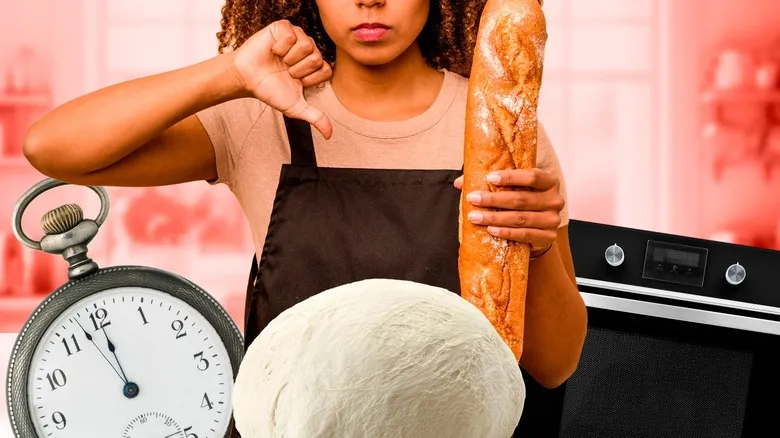Not preparing before you bake
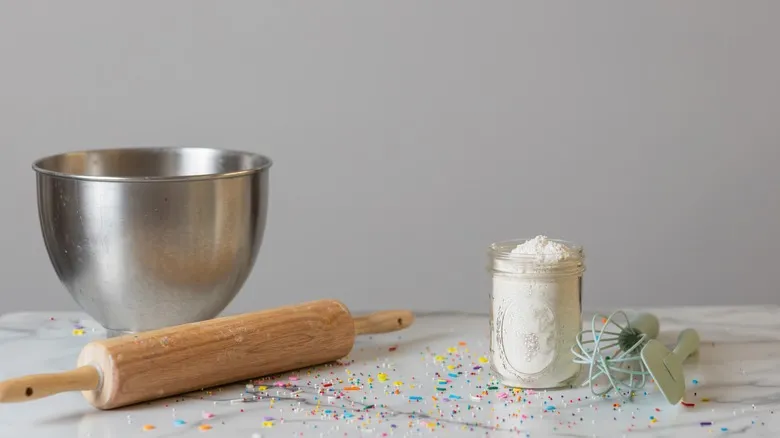
While some baked goods may appear simple to create, the truth is that very few baking recipes lend themselves to improvisation. Therefore, it's essential to read through a recipe completely before you start baking. "People often feel eager to dive in, so they just jump right in," said chef and baking show personality Gemma Stafford. "Unfortunately, they later discover that their recipe involves more steps than they anticipated, which may include resting periods, freezing, or even overnight proofing." Additionally, the way certain ingredients need to be prepared or incorporated—such as needing to be chilled beforehand—can significantly impact the outcome.
Then there are the baking tools you'll require. Do you have enough mixing bowls? Do you own a mixer or whisk? Clearly, thorough preparation is a vital component of successful baking. "Take the time at the outset to gather all your ingredients and equipment, and ensure you comprehend each step," Stafford advised.
Marta Nilsson from The Hummingbird Bakery even recommends prepping specific ingredients ahead of time and considering shortcuts when necessary. She urges bakers to reflect on this question: "Can I simplify the process by preparing some elements in advance?" If the answer is affirmative, go for it.
Underestimating how much time you need
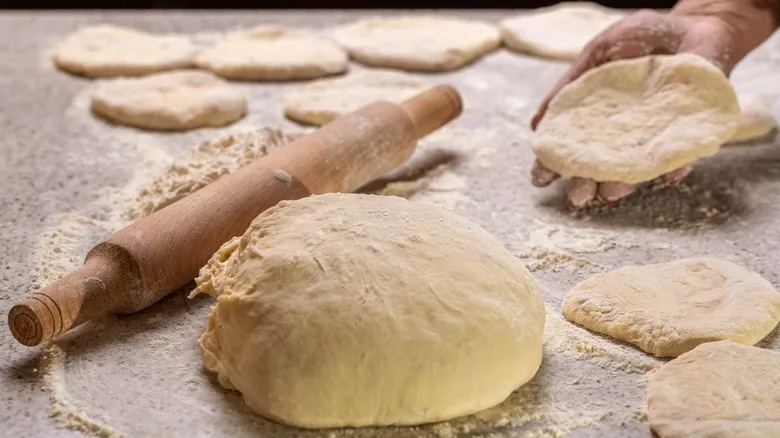
Many of us who love to bake have experienced this: you stumble upon what appears to be a quick and simple recipe, and you eagerly dive in, only to discover that your cookie dough needs to chill in the fridge for much longer than you anticipated spending on the whole recipe. When baking from scratch, it's wise to remember that few things are truly quick, as many types of dough require resting or refrigeration.
If you've ever been caught off guard by this, you're certainly not alone. Even seasoned bakers have faced similar surprises. "I've been in situations where I'm making bread that I think will take just two hours, only to find out it's actually an overnight process," Stafford shared. Once again, the key is to read the recipe thoroughly before you begin. As a general guideline, if you're planning to bake, ensure you have a few hours to dedicate to the process.
Not measuring your flour correctly
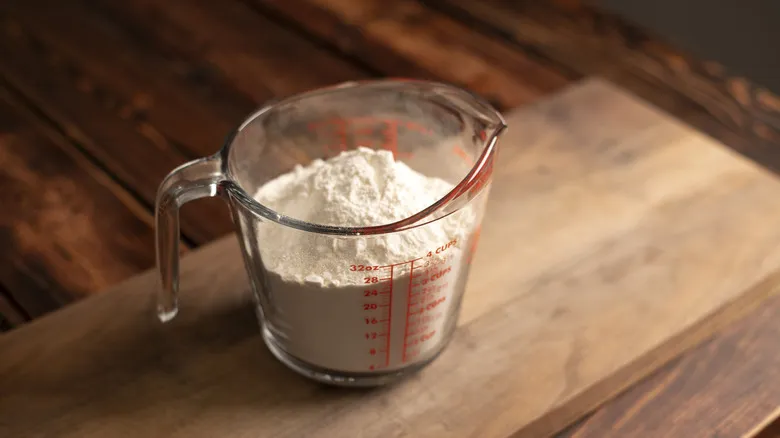
While it is an essential component in numerous baked goods, soft, nearly scentless flour can be a challenge for beginner bakers. Seasoned bakers often emphasize that improper measurement of flour is a leading cause of baking mishaps. According to baking expert and blogger Stephanie Rutherford, if your cakes turn out "hard, tough, or biscuit-like," the wrong amount of flour is likely the culprit. She recalls that not measuring flour accurately was "the number one mistake I made when I was first learning to bake."
Rutherford points out that this issue arises because many people tend to scoop flour directly from the container with their measuring cup instead of carefully pouring it into the cup. Although this may seem insignificant, it can significantly impact the final outcome. "[It] compacts the flour, leading to cookies that don’t spread, dry cakes, and cakey brownies," she explained. To avoid this, she suggests using a spoon to transfer the flour into the measuring cup and ensuring it is leveled off.
Forgetting to grease or flour your pan
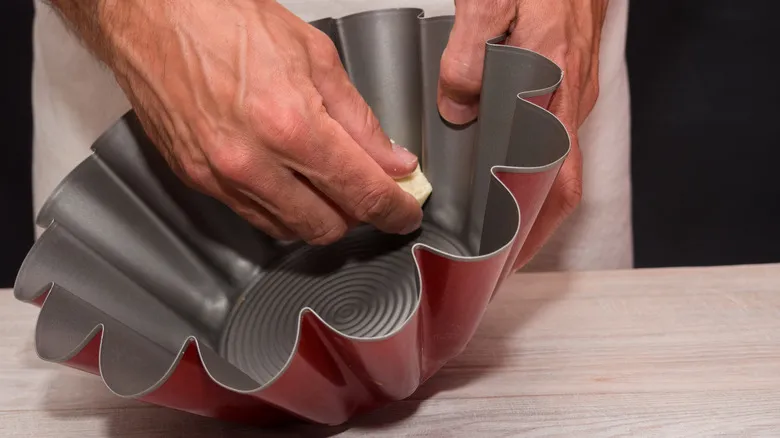
Few things are more disheartening in the kitchen than having your perfectly baked cake cling to the pan. Most cake or brownie recipes typically recommend greasing your mold or pan with butter or cooking spray, dusting it with flour, or doing both to avoid this issue. However, it's an easy step to overlook, especially when you're concentrating on getting everything else just right. Neglecting to grease or flour your pan can lead to a baking catastrophe, resulting in a cake that crumbles or significant portions of brownies that remain stuck in the pan.
While there are instances where you might not want to grease or flour your pan—since the texture of certain baked goods, like cookies or pies, could be adversely affected by that layer of butter or flour—many bakers suggest greasing or flouring even non-stick cake pans, as it's always better to be safe than sorry.
Not realizing the impact of altitude

Stephanie Rutherford points out that many people overlook how small details can significantly influence a recipe when it comes to baking. One such detail is your location. Altitude can have various effects on the baking process. For example, lower air pressure can extend baking times, and you might need to increase your oven temperature. Additionally, altitude affects evaporation, which means you'll need to adjust the quantities of certain ingredients. "For high-altitude cookie baking, you should add a tablespoon of flour for every cup of flour," Rutherford advises.
Neglecting to consider altitude can result in a range of baking mishaps, such as cakes that collapse, dry or crumbly textures, and cakes that fail to set properly. Cookies may spread too much or too little, or turn out excessively dry, among other possible problems. If you reside at a high altitude, it's wise to seek out baking tips before you start.
Baking cupcakes at too a high temperature
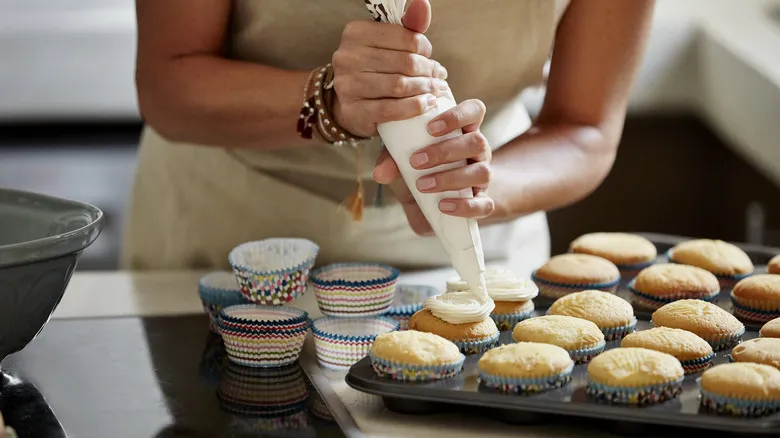
It’s a common experience: those cupcakes you prepared for a birthday or special occasion were meant to have a smooth, flat surface, ideal for frosting. However, when you pull them from the oven, they may be cracked, uneven, or bumpy, resembling a topographical map rather than a perfect canvas for decoration. The issue often stems from the oven temperature.
"We frequently notice that people set the oven temperature too high, causing the cake to rise too quickly, which results in a pointy or domed top with cracks," explained Gayle Clutterbuck from The Hummingbird Bakery. "This makes it challenging if you want to frost or write on the cake." The fix? Lower the oven temperature by a few degrees and extend the baking time for a flatter cupcake top.
Not letting your dough rest
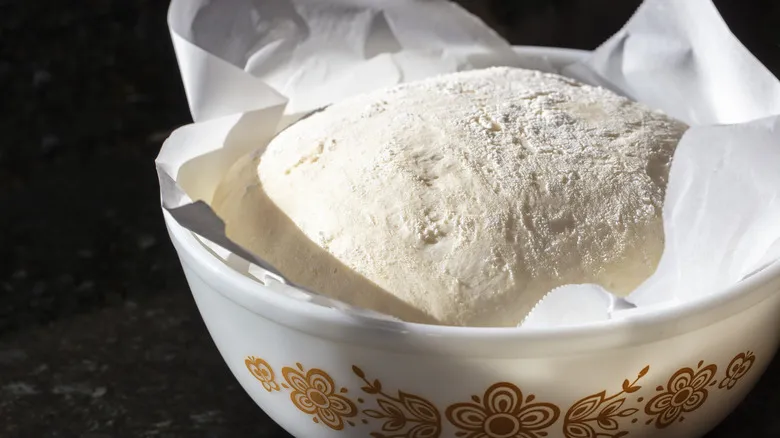
In numerous baking recipes, you'll encounter directions to allow the dough you've prepared to "rest." This involves setting it aside, either on your countertop or in the refrigerator, depending on the recipe's requirements. Allowing the dough to rest enables the flour to absorb moisture and develop gluten, resulting in a more pliable and manageable texture. Additionally, resting enhances the dough's flavor. Therefore, there are certainly valid reasons to take a break in your baking process.
Adhering to a recipe's specific resting instructions for dough is crucial. For example, when making cookies, Rutherford often suggests letting the dough rest "for 10 minutes before you start scooping it, particularly in recipes that use melted butter." She notes that this helps prevent the cookies from spreading excessively, a common challenge many bakers face.
Underestimating the importance of cooling time
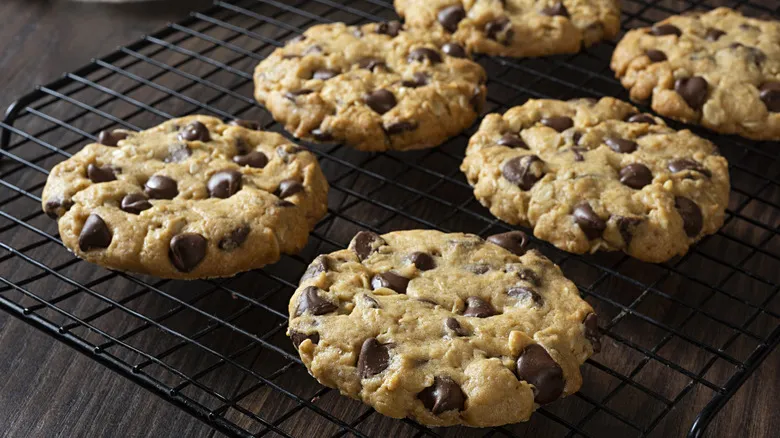
Numerous baking recipes advise bakers to allow their pastries to cool, often before proceeding to the next step. In standard recipes, the cooling time can seem arbitrary or based on personal preference. However, allowing baked goods to cool is an essential aspect of the baking process. For example, if you intend to frost a cake or cupcakes, doing so while they are still warm can lead to a messy situation and may prevent the icing from adhering properly.
There are also more nuanced reasons to adhere to cooling times. For instance, if you've ever baked what appeared to be perfect cookies, only to have them crumble when transferred to a serving plate, it could be due to not allowing them to cool for a few minutes on the baking tray and then on a cooling rack. If you lack a cooling rack, there are plenty of alternatives available online. Personally, I find that placing the cookies on paper towels spread out on the counter works well for me.
Starting out with a challenging recipe
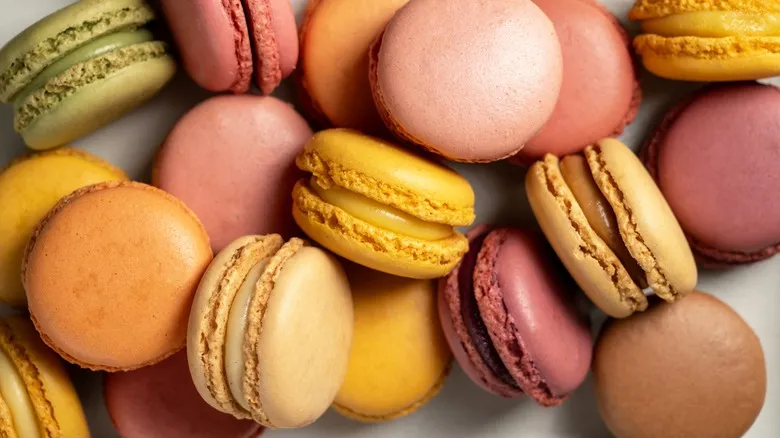
When you embark on your baking journey, a realm of delicious opportunities awaits you. However, one frequent error that Stafford observes among novice bakers is attempting a complex recipe before gaining experience with simpler ones. "We all have moments where we see a stunning dessert, like an intricate cake or a perfectly crafted pastry, and think, 'I can make that!'" she explained. Unfortunately, the outcome is often more disappointing than delightful. If the attempt doesn't go well, it could deter you from trying again. "While you're learning, it's crucial to choose recipes that match your skill level," Stafford advised. "This approach sets you up for success, boosting your confidence to continue baking and eventually tackle more complex recipes that involve various techniques."
For those just starting out, Stafford recommends experimenting with mug cakes—her one-minute recipes gained popularity on YouTube in 2014. They require only a few tablespoons of basic ingredients and are prepared in a microwave, making cleanup a breeze. Marta Nilsson from The Hummingbird Bakery also emphasizes the importance of understanding your skill level. She encourages beginner bakers to build their confidence by starting with straightforward recipes, like cookies or muffins.
Over-baking
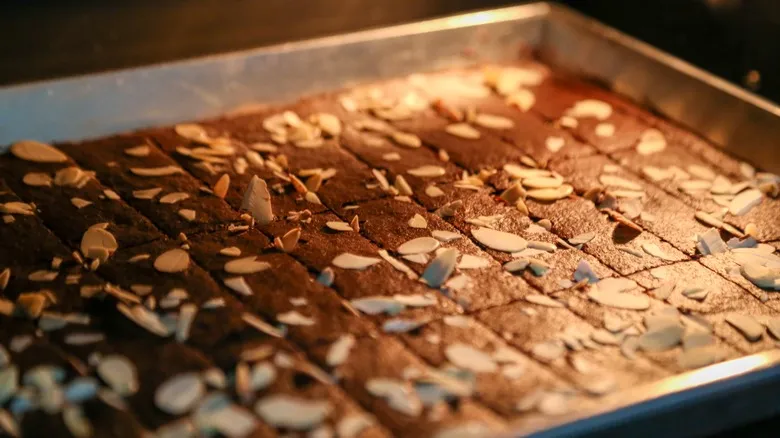
One of the most challenging aspects of baking is that even if you adhere to the recipe, there's a chance you might end up over-baking your delicious creation. Many novice bakers are unaware that baked items continue to cook as long as they remain in a hot or warm oven, even after it has been turned off.
Fortunately, there are several techniques to prevent over-baking. Stephanie Rutherford offers some helpful advice. "When I try a recipe for the first time, I always start with the minimum time suggested," she explained. "Then, I use a toothpick to check for any batter. If it comes out with batter on it, I’ll add an additional one to five minutes, depending on how much batter is stuck to the toothpick."
Brownies, in particular, are a dessert that Rutherford notes are frequently over-baked, leading to a tough texture. "The key is to slightly underbake them," she recommended. "I bake until the edges are firm, but the center remains a bit undercooked."
Not knowing how to set your oven
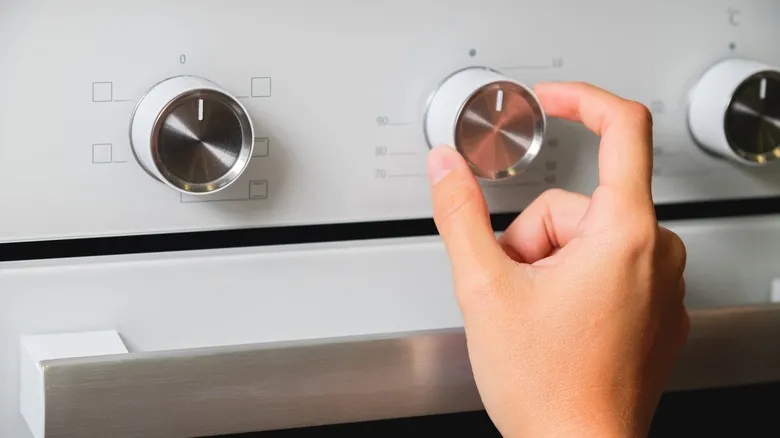
Even if you adhere strictly to a recipe, the outcome may not meet your expectations. It might end up overcooked, completely charred, insufficiently baked, or simply lacking the desired texture. This could be due to your oven rather than your baking skills. While ovens have clearly defined temperature settings, each model operates a bit differently. Some may run hotter, others cooler, and many fluctuate by reaching a certain temperature before dropping and then increasing again.
Most bakers and cooks agree that the best approach is to familiarize yourself with your oven. However, novice bakers might not yet be aware of their oven's peculiarities. Thankfully, there’s an alternative solution. Consider purchasing an oven thermometer, which will allow you to accurately track the temperature and monitor how well the heat is maintained during your baking process.
Skipping past the blog post to get to the recipe

It's a familiar joke and frustration that you often have to scroll endlessly through what feels like an entire life story before reaching the recipe that initially drew you to a blog. There are various theories as to why this happens, ranging from a blogger's genuine desire to share their journey to strategies for search engine optimization.
However, all that text you might be inclined to skip could hold more than just personal stories. Self-taught baker Rutherford believes that anyone can master baking, but it requires a commitment to learning and studying. This includes taking the time to read through the content preceding the recipe. "When you come across a baking recipe from a blogger, be sure to check out their post for helpful tips and tricks," she advises. So, the next time you feel like bypassing all that text to get straight to the recipe, remember that those words might offer valuable insights to enhance your baking skills.
Not doing your research
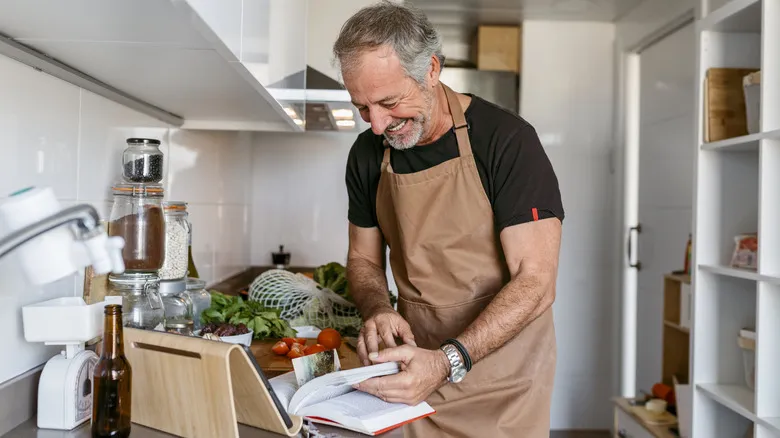
If a recipe appears intricate or unclear, it's wise to gather more information before attempting to bake. For example, Stafford suggests exploring various versions of a recipe to gain a better understanding. Fortunately, numerous professional and amateur bakers frequently share their recipes and expertise across a wide range of platforms. Check out printed cookbooks, food-related websites, baking blogs, and social media for helpful tips and techniques. Stafford particularly recommends YouTube, where she and many other bakers upload videos showcasing recipes and advice.
The more you delve into recipes, the more likely you are to discover what suits you best. Some individuals find it easy to comprehend and follow written instructions, while others prefer visual aids, such as videos or recipes with step-by-step illustrations.
Improvising or not following the recipe exactly
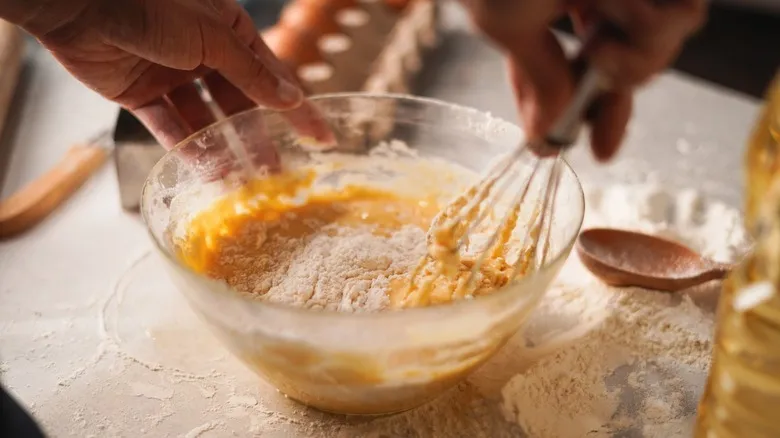
You may have heard that baking is a science, and this is more than just a cliché. It requires the careful combination of specific amounts of ingredients in precise methods. The chemical interactions between these ingredients are so meticulous that many online baking recipes are even used as engaging ways to teach scientific concepts to children. While you might be able to swap out certain ingredients or adjust flavor-enhancing additions in some recipes, it's generally crucial to adhere to a baking recipe exactly as it is written.
Neglecting the scientific aspect of baking often leads to disappointment. Rutherford frequently encounters exasperated bakers who "approach baking like cooking and disregard the recipe." This approach typically results in outcomes that fall short of their expectations. While it's great to break the rules in various aspects of life, baking is not one of those areas where you should stray.
Baking something new in a stressful situation
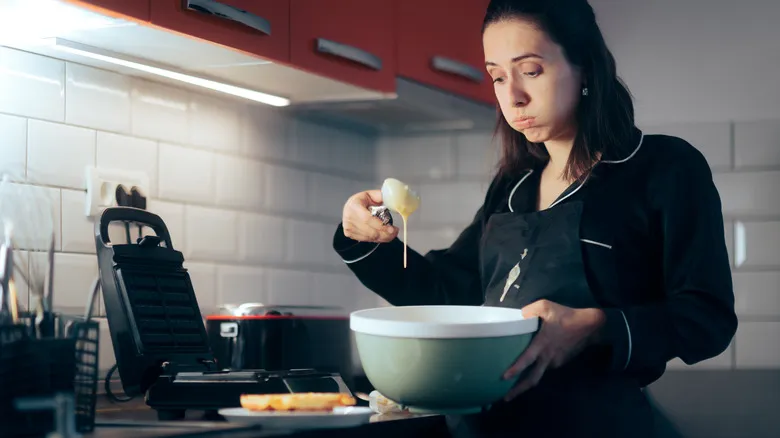
Following a baking recipe can be quite difficult, even when it's just for enjoyment. Add some pressure to the mix, and you might not only end up with a baking disaster but also lose your enthusiasm for it altogether. "We often hear feedback from novice bakers attempting to make their own pie crusts during the holidays, which can already be a hectic time," said Gemma Stafford. "Their confidence takes a hit, and they feel like they've failed. I understand! Why would anyone want to go through that again?"
Attempting to bake something for the first time in a high-stress, high-pressure environment like a holiday gathering is a risky choice. Instead of trying out a new recipe during these times, consider keeping it simple. After all, a straightforward baking recipe that turns out well will provide a much more enjoyable experience for you and will be greatly appreciated by your guests.
Giving up
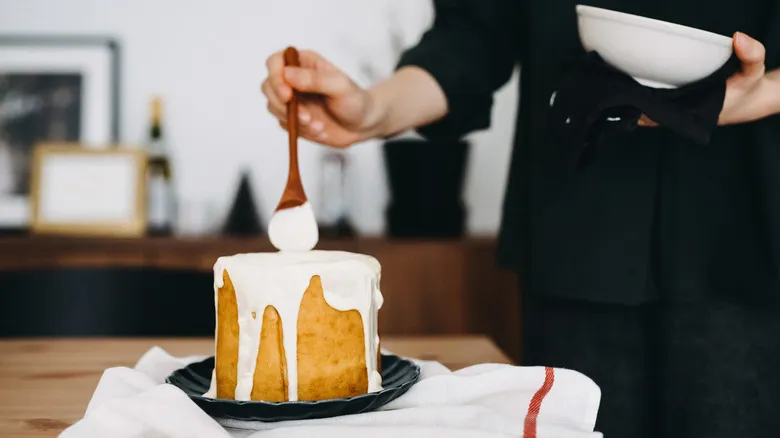
Our baking specialists had a wealth of tips to offer, but the most common advice they all shared was that practice is key to mastering the art of baking. "Like with most skills, it becomes easier once you start practicing," said Stephanie Rutherford. "With each attempt, you'll discover something new."
Gemma Stafford emphasized that it's perfectly fine to fail. "Don't let one setback determine your future success," she advised. "If you aspire to improve your baking skills, you need to return to the kitchen and keep practicing." Gayle Clutterbuck echoed this sentiment, stating, "While practice may not always lead to perfection, it certainly leads to progress!" Marta Nilsson encouraged bakers to view every experience, including mistakes, as valuable learning moments. "But above all, remember to have fun!" she added.
So, with this motivation, go ahead, fellow bakers, and dive into that recipe! No matter the outcome, you'll gain new insights. And remember, even baking mishaps often yield something delicious, so you might just have a sweet treat to enjoy while you tidy up and plan your next culinary adventure.
Recommended
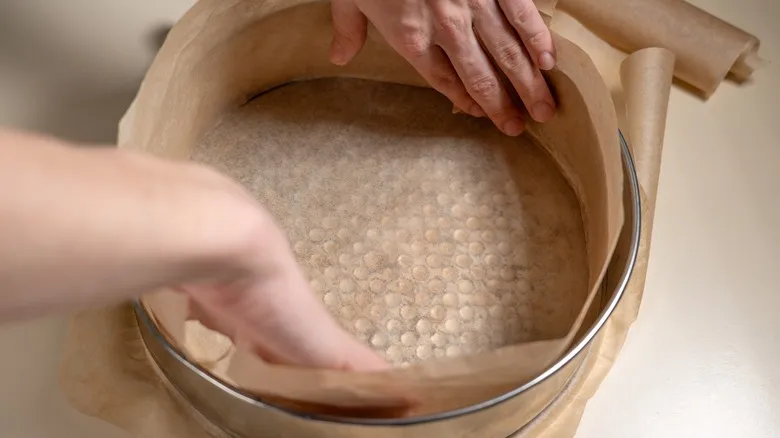
The Secret To Making Tall Cakes In A Short Pan

The One Brand Of Chocolate Ina Garten Always Bakes With
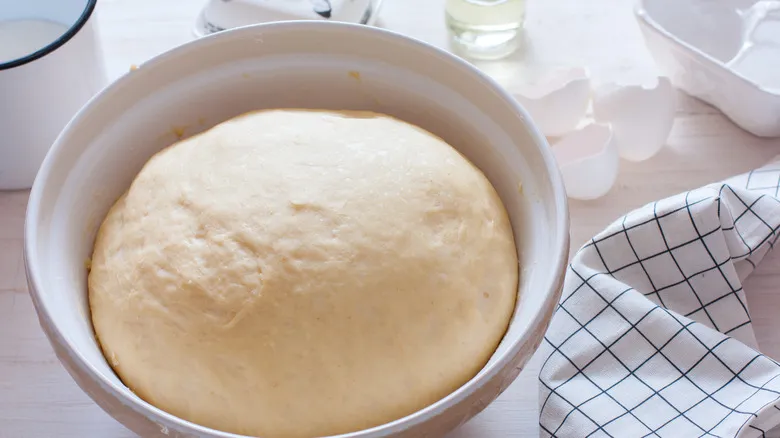
The Air Fryer Shortcut To Proof Bread Way Faster
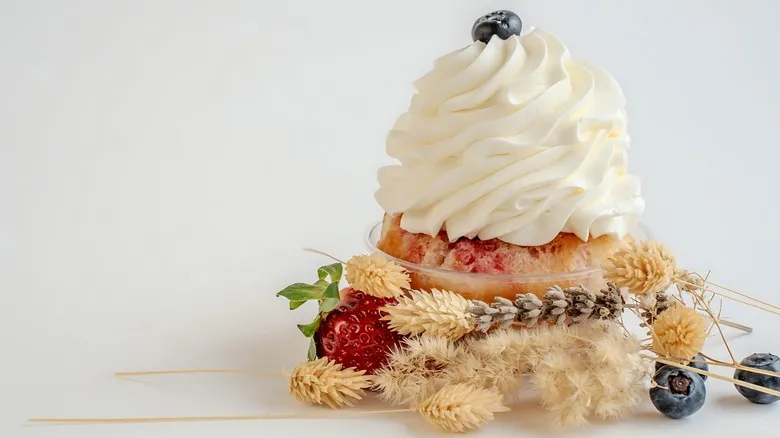
Make Homemade Whipped Cream Easier And Better With One Simple Swap
Next up

